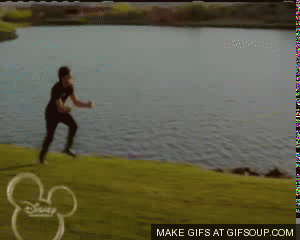
The collective ideas of Bridget grant regarding literacy studies
The first day of my Spanish class this semester, my professor told us absolutely no cell phones during class!! Ironically she typed this on her computer onto a projector. I thought holy mole (Spanish pun amiright), how am I going to pass this class? Good thing I made friends with two native Spanish speakers that I could ask for help since I had no resources outside of myself and my very unhelpful Spanish book and god forbid I buy a dictionary. There were so many moments in the class where I could have benefitted from looking up one word or a conjugation here and there. If I learned anything from the drastic differences between this class and my Spanish class it’s that the classroom should be a space apart of the modern world that incorporates tools that people use on a daily basis. Some might argue that this decreases attentiveness, and yes I’m sure there are moments it does, but I would argue we have more information and increased ability to take part in a community of academia that no other generation has ever experienced before. In no moment should any tool be discouraged completely. For instance, I’m sure not every 8th grader has access to a laptop or maybe not even a computer. If I had a class of 8th graders with smartphones I would like to encourage all of them to learn to use them to publish to Google Docs, use the internet as a source, and among many other skills utilize their smartphones to increase their accessibility to take part in a learning environment.
In regards to how ideas from the study of literacy can affect the classroom I want to focus on some ideas from James Gee’s book “What Video Games Have to Teach Us About Learning and Literacy”. I have a hard time thinking of student identity which is why I probably think of it so often. For me, I always felt like teachers were teaching me to become a teacher. Maybe other students didn’t feel this way but I always did. My parents both became educators so maybe I was truly predestined to be involved in education before I even thought about my other options. I always wonder how my older sister decided to become an environmental scientist while all along I wanted to be a teacher. In my classes in the future I strive to have each student’s personal identity shining through on every assignment I ask them to participate in. Hopefully this will impact them when they decide how to use English class to move forward in any path they choose. Another idea Gee discusses is choice. This class is the first class I truly felt I had a choice to take part in which community I was most interested in. The model of groups about 5-10 people can be reconstructed at most any size, classrooms with 300 students or classrooms with 25 students. Supplying choices for any population of people is such an obvious solution to increase engagement. During article groups, Jason had a station illustrating the concept of community within video games. On these interfaces people were discussing game strategy, sharing ideas, discussing politics, making jokes, and burning through so many topics it was hard to keep up with. At our table group we started discussing how encouraging students to work together, ask each other questions, and collaborate could potentially affect our classrooms. We talked about how this might decrease cheating and increase understanding for some students. I could see this type of interface used in any classroom whether it was a math, science, language, history, or an elective class.
The relationship between language and literacy interests me since they are so interconnected. John McWhorter’s Ted Talk about texting and literacy argues that texting is a new type of language that resulted from the desire people had to write like how they speak. I’ve been trying to categorize in my brain how reading, writing, communication, and language fit into literacy studies but I decided recently while I was preparing my presentation that these things are all just jumbled into and connected to literacy studies. Much broader than that I’ve decided to think of literacy as the way people learn to use text. BOOM. I think I defined it. The more general any definition of literacy is the better, since there are so many parts that can be added to or changed.
My favorite part of this class was giving my ignite talk. I was really happy with how it turned out and I have never been confident speaking in front of people until now when I felt I was passionate and informed about my topic that I presented. So thank you Kim for encouraging me to speak, I was so happy that I did and I could definitely see myself participating in these types of events in the future. I feel responsible to share ideas with others and I feel like I’ve stepped into a community that I just want to frolic about in for the rest of my life.

 Website:
Website: